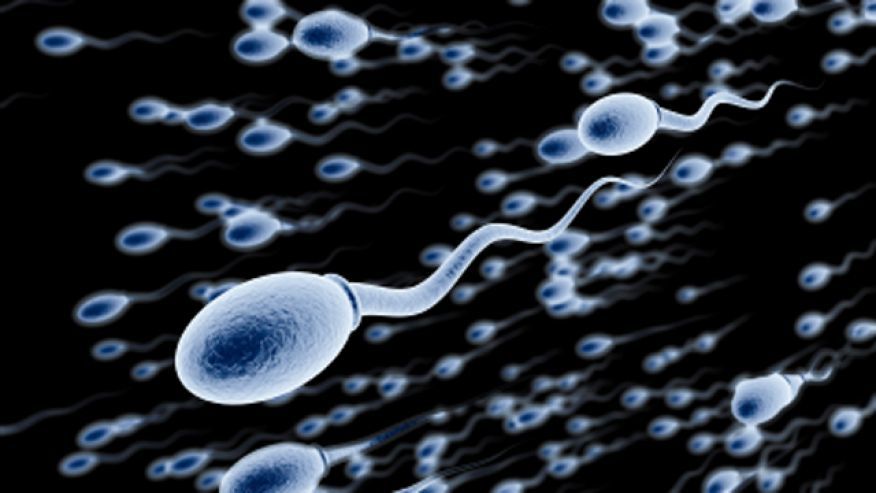Contents:
Medical Video: Can't Get Pregnant? 6 Surprising Reasons Why You Can't Get Pregnant
Indonesian culture seems difficult to accept the fact that most women can not become mothers and have no children. This is contrary to everything we have been taught about how a woman should be.
Women are taught that having children is the only right way to find fulfillment of identity. They grow up learning that they have to get pregnant, give birth, and feel the pleasure of being a mother - and if not, it means that their lives are incomplete, not fully women. If we believe everything what media and social culture say, women - even teenage girls - are on the verge of being desperate to have children. Children are their greatest desire.
Women who fall into this group, whether based on choice or not, often experience unfair criticism and scorn. They are considered stubborn, lazy, and selfish. They are overwhelmed with shame and seclusion.
But, there are various reasons why a woman does not have children - all of which do not reduce the degree and essence of being a "whole" woman.
What are the reasons for a woman not having children?
1. Physically incapable
Based on data from CNN, of the 40 million married couples in Indonesia who are in childbearing age, 10-15 percent are infertile, which makes it difficult to get children. Infertility is the inability of couples to successfully get pregnant after regular sexual intercourse for 1 year without contraception.
Infertility can be caused by age, too drastic changes in body weight, excessive alcohol use, smoking, stress, or just an irregular menstrual cycle. The American Society for Reproductive Medicine, reported from Self, say 5 to 10 percent of cases of couples who have difficulty getting pregnant, all fertility tests that are undertaken have normal results. This condition, or in cases where only a small abnormality is not found to cause infertility, is called unexplained infertility.
2. Affected health conditions
A history of medical conditions that women have also plays an important role in their decision to have children.
Health issues such as ovulation problems (fallopian tube disorders, polycystic ovary syndrome / PCOS, early menopause, endometriosis, ovarian physical defects, thyroid disorders, uterine cysts, pelvic inflammatory syndrome, etc.) to other health problems not related to the ovulation system women, such as urinary tract infections (UTI), venereal disease, thyroid gland disorders, anemia, genital tuberculosis, immune system problems, to stress and trauma - all of these can play a role in female infertility. When a woman has one of the 9 health conditions it also makes her choice not to have children as a strong reason.
In addition, sometimes some prescription drugs used to treat certain conditions also make a woman's reason not to have children, after weighing the benefits and risks that might be brought. For example, Paxil, an anti-anxiety drug, has been linked to birth defects in infants. Symptoms of discontinuation of this medication involve cold sweating, vomiting, dizziness, chronic fatigue, and weight loss. The stress of stopping the drug that must be taken for nine months can place both prospective mothers and babies in increasing pregnancy complications.
3. Two children are enough
The idea that marriage is only for the means of reproduction is now too outdated. Even though most married women end up having children, some women don't really want a big family, and there is nothing strange about this.
This phenomenon is evidenced by the Indonesian Ministry of Health's Riskesdas data which shows that contraceptive use from 1991-2012 tended to increase, while the trend of fertility rates tended to decline. That is, the coverage of women of childbearing age (15-49 years) who use family planning is in line with the decline in national fertility rates. Furthermore, there was a decrease in the trend from 3 children per woman in 1991 to 2.6 children from 2002 to 2012.
4. Use of lubricants during sex
Lubricants reduce the agility of movement and smooth transfer of sperm. Reproductive physiologist, Joanna Ellington, reported from India Times, said that water-based lubricants generally contain glycerin (proven as sperm poison) and propylene glycol, both of which are hyperosmosis. This causes permanent damage to the sperm and increased mortality after exposure to the lubricant. Sperm damage and the inability to penetrate into the womb that results can prevent fertilization in some couples.
5. Increased use of contraception
The number of contraceptive use in Indonesia, reported the Indonesian Ministry of Health, throughout 2005-2012 reached 61 percent, exceeding the average contraceptive use in ASEAN countries at 58.1 percent, proportional to the number of women of childbearing age in Indonesia which reached 65 million women - ranked first in ASEAN in 2008.
The 2013 Riskesdas data also shows that 59.3% of women of childbearing age (15-49%) with married status in Indonesia actively use modern family planning methods (implants, injections, MOW / MOP surgery, condoms, injections, pills). The 2013 BKKBN data reported that there were 8,500,247 couples of reproductive age (PUS) who were new KB participants, and almost half (48.56%) of the total population used the KB injection method.
6. Don't want it, aka personal reasons
In the end, having children is an individual choice. And some women just don't want to do it. Women experience a kind of freedom they have never had before.
Gone are the days when women can only become housewives, when they feel the pressure to stay home and take care of their families, 24 hours a day 7 days a week. Now, women are in every corner of every professional industry, with numbers growing every day. This variety of new choices makes women feel like they really can do everything; to focus on careers or or other personal problems.
Another interesting aspect, a study from Kansas State University, was reported from Elite Daily, showing that watching / hearing / handling tantrums and loud whining, smelly diapers, or other dirty and disgusting things from caring for babies makes many people prefer not to have children.
READ ALSO:
- What are the risks that anal sex can cause?
- Not Just Drive Out Stress, Vacation Is Also Good for Physical Health
- What Is the Result of Having Sex Too Often?












